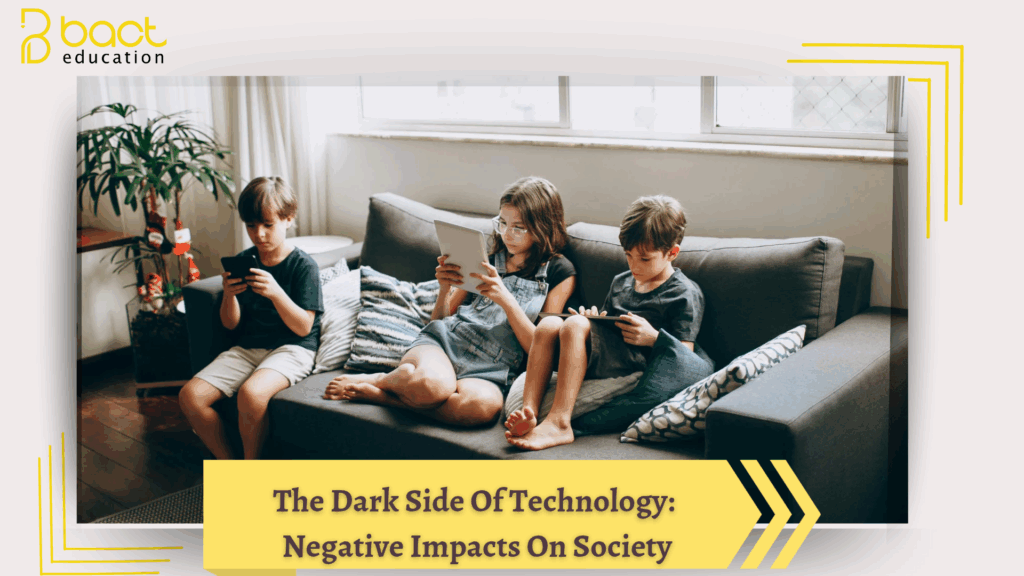## **Introduction**
Technology has revolutionized the way we live, work, and communicate, offering countless benefits. However, its rapid advancement also brings significant drawbacks that affect mental health, social interactions, physical well-being, and even cultural values. This article explores the harmful effects of technology, highlighting key issues such as addiction, social isolation, health problems, and environmental damage.
## **1. Psychological and Mental Health Issues**
### **Depression and Anxiety**
Excessive use of social media has been linked to increased rates of depression and anxiety, particularly among young adults. Studies show that constant exposure to idealized lifestyles online can lead to feelings of inadequacy and low self-esteem .
### **Addiction**
Technology addiction, especially to smartphones and social media, is a growing concern. Many people struggle to disconnect, leading to sleep deprivation, reduced productivity, and even withdrawal symptoms when offline .
### **Reduced Attention Span**
The constant bombardment of notifications and short-form content (e.g., TikTok, Instagram Reels) has shortened attention spans, making it harder for individuals to focus on tasks or engage in deep reading .
## **2. Social and Behavioral Problems**
### **Social Isolation**
Despite being more “connected” than ever, people are experiencing increased loneliness. Online interactions often replace face-to-face communication, weakening real-life relationships .
### **Cyberbullying**
The anonymity of the internet has fueled cyberbullying, leading to severe emotional distress, particularly among teenagers. Tragically, some cases have even resulted in suicide .
### **Erosion of Family Bonds**
Families spend less quality time together due to excessive screen time, leading to weaker emotional connections and communication gaps .
## **3. Physical Health Consequences**
### **Sleep Disorders**
Blue light from screens disrupts melatonin production, causing insomnia and poor sleep quality. Many people stay up late scrolling through social media, leading to chronic fatigue .
### **Neck and Back Pain (Text Neck Syndrome)**
Prolonged smartphone use strains the neck and spine, leading to chronic pain and poor posture .
### **Sedentary Lifestyle & Obesity**
Technology encourages a sedentary lifestyle, reducing physical activity and contributing to obesity, heart disease, and diabetes .
## **4. Environmental and Societal Harm**
### **E-Waste Pollution**
The rapid turnover of electronic devices generates massive amounts of toxic e-waste, polluting soil and water with hazardous materials like lead and mercury .
### **Energy Consumption**
Data centers, smartphones, and other tech devices consume enormous amounts of electricity, contributing to climate change .
### **Loss of Privacy**
With the rise of data tracking and surveillance, personal privacy is under threat. Companies and governments collect vast amounts of user data, often without consent .
## **5. Cultural and Cognitive Decline**
### **Reduced Critical Thinking**
Over-reliance on search engines and AI tools weakens problem-solving skills and independent thinking .
### **Erosion of Traditional Values**
Technology has shifted cultural norms, replacing traditional social interactions with digital ones, leading to a loss of community bonds .
### **Misinformation & Fake News**
Social media algorithms spread misinformation rapidly, polarizing societies and undermining trust in institutions .
# **Conclusion**
While technology offers undeniable benefits, its negative effects cannot be ignored. From mental health crises to environmental damage, the harms are far-reaching. To mitigate these risks, individuals and societies must adopt healthier tech habits, enforce stricter regulations, and promote digital literacy. Balancing technology use with real-world interactions is key to preserving well-being in the digital age.

